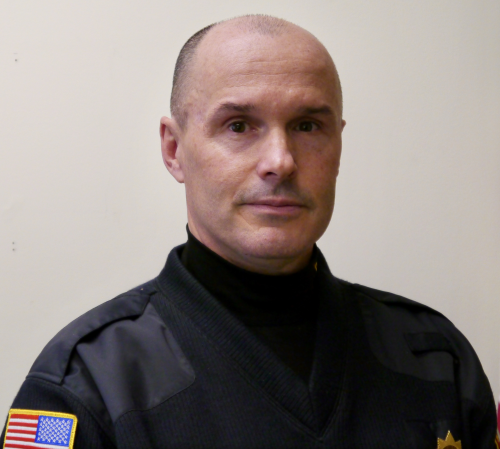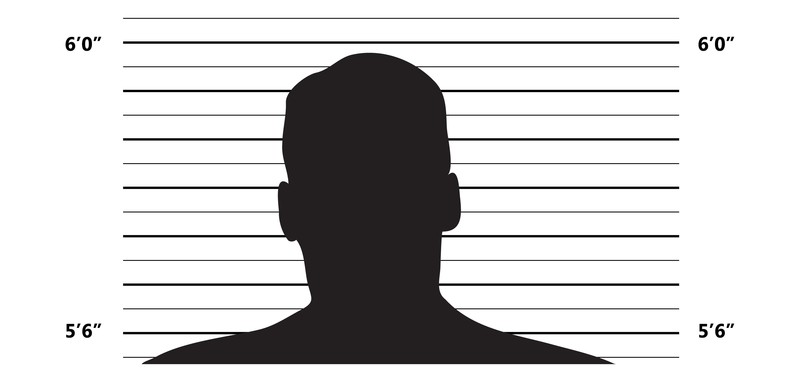Some police chiefs argue vague law gives discretion
A newly enacted state law that forbids police departments from releasing mug shots after an arrest is receiving mixed reviews from law enforcement agencies.
The law, signed by Gov. Andrew Cuomo on April 12 as part of the 2019-20 state budget, prohibits police from releasing “booking information about an individual, including booking photographs, unless public release of such information will serve a specific law-enforcement purpose,” such as “disclosure of a photograph to alert victims or witnesses to come forward to aid in a criminal investigation.”
According to the governor’s office, the law specifically targets online sites that post mug shots and demand payment for their removal.
Putnam County Sheriff Robert Langley Jr. said he believes the wording of the law regarding exceptions for “law-enforcement purposes” allows him discretion and that his office will continue to release the mug shots of people who are arrested.

“I firmly believe that it is the right of every citizen to know about illegal activity in the community,” he wrote in an email. Langley said mugshots often help solve crimes and assist in the apprehension of suspects.
The mug shot ban, which is an amendment to the state Freedom of Information Law, is designed to prevent the “unwarranted invasion of personal privacy” of people who are arrested, according to its text. An earlier version endorsed by Cuomo would have also restricted the release of arrest records and police reports but was scaled back to include only booking information after opposition from law-enforcement and journalism groups.
Upstate, at least 10 police departments said they will continue to release booking photos, according to an informal survey by the Syracuse Post-Standard. “I believe in transparency,” Cayuga County Sheriff Brian Schenck told the paper. “It’s important that the public knows who we are arresting.”
By contrast, the New York State Police stopped releasing booking photos even before the governor signed the bill into law.
“We’re a state agency, so we’re going to do what the state dictates,” said Trooper A.J. Hicks, a spokesman for Troop K, which is based in Poughkeepsie and whose patrol area includes Beacon and Philipstown. Booking photos will still be made available in select circumstances, he said, such as when a person is missing or wanted.

Beacon Police Chief Kevin Junjulas said he has not yet decided how his department will respond. “I have a duty to follow the law, although I don’t necessarily agree with them all,” he said, adding he considers issues such as bail reform and legalization of marijuana more important than mug shots.
In Cold Spring, Officer-in-Charge Larry Burke declined to comment, saying he needed to review the law and consult with the village attorney.
In an email, a spokesman for the governor, Jason Conwall, wrote that the restrictions are designed to “help curtail a nefarious practice” by websites that post mug shots until they are paid to remove them. “It’s tantamount to extortion of formerly incarcerated individuals, as well as innocent people,” Conwall said. Mug shot websites are part of what he characterized as “an internet shaming industry.”
Fourteen states have passed laws banning mug shot sites from charging removal fees, according to the National Conference of State Legislatures. Besides New York, five states have laws restricting the release of booking photos.
Robert Freeman, executive director of the state Committee on Open Government, told the Utica Observer-Dispatch last week that his office has “advised for years and the courts agreed that mugshots are public. Common sense would tell you that if you can see the face of the person who’s been charged during a public judicial proceeding, disclosure of the photograph of that person does not rise to the level of an unwarranted invasion of personal privacy.”
He said a law that bans sites from requiring payment for the removal of mug shots “is a better way of dealing with the problem.”
In the bill signed by the governor, the legislature included its reasoning for the law:
“The legislature finds that law-enforcement booking information and photographs, otherwise known as ‘mug shots,’ are published on the internet and other public platforms with impunity. An individual’s mug shot is displayed publicly even if the arrest does not lead to a conviction, or the conviction is later expunged, sealed or pardoned.
“This practice presents an unacceptable invasion of the individual’s personal privacy. While there is a well-established Constitutional right for the press and the public to publish government records which are in the public domain or that have been lawfully accessed, arrest and booking information have not been found by courts to have the same public right of access as criminal court proceedings or court filings.
“Therefore, each state can set access to this information through its Freedom of Information laws. The federal government has already limited access to booking photographs through privacy formulations in its Freedom of Information Act, and the legislature hereby declares that New York will follow the same principle to protect its residents from this unwarranted invasion of personal privacy, absent a specific law enforcement purpose, such as disclosure of a photograph to alert victims or witnesses to come forward to aid in a criminal investigation.”
Most New York residents appear to agree. According to poll by Siena College released on April 16, respondents by a 2-to-1 margin said the law was a bad idea. However, a number of criminal justice organizations have voiced support.
“Many Americans incorrectly assume that a ‘mug shot’ means that a person has committed a crime,” said the Legal Action Center, which is based in New York City and Washington, D.C., in a statement. “They don’t realize it is the first step in a process that often leads to charges being dropped or dismissed, or a verdict of ‘not guilty.’ ”


